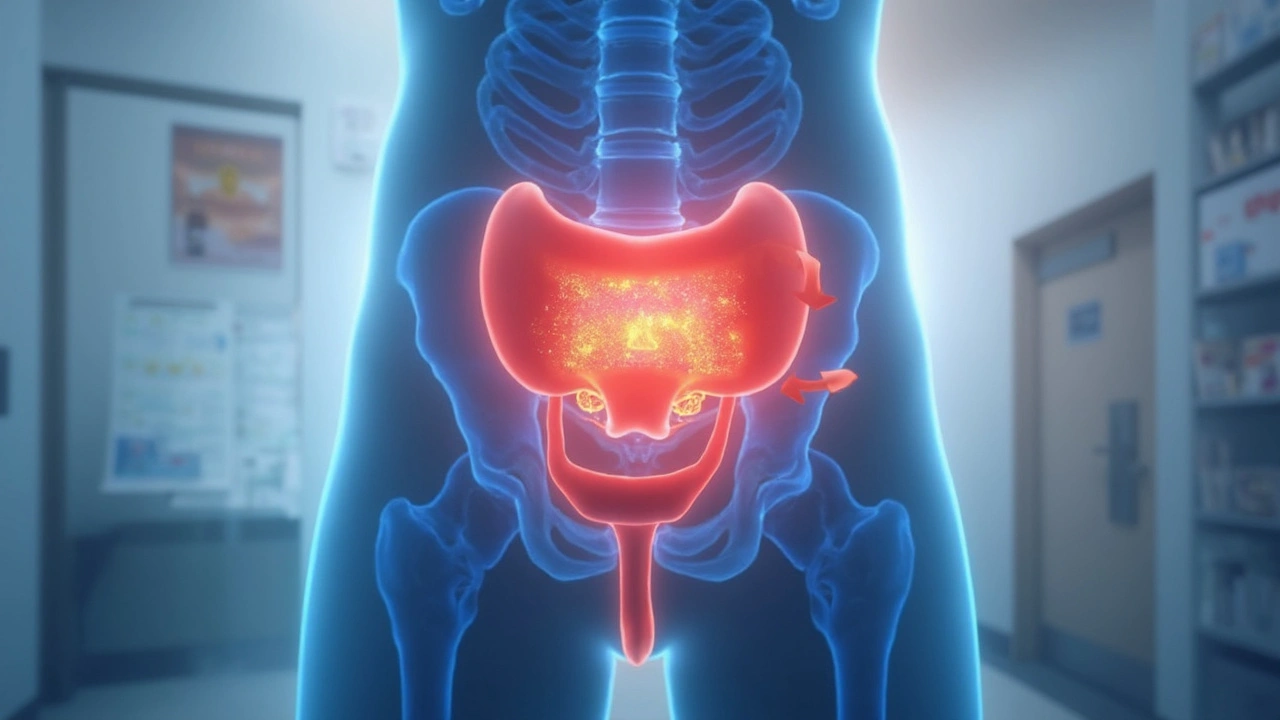Bladder Symptoms: What to Watch For and Why They Matter
Feeling the need to pee a lot? Noticing leaks or a painful urge? Those are bladder symptoms and they can tell you a lot about what’s going on inside your body. Understanding the signs helps you decide if a simple home fix will do or if you need a doctor’s opinion.
Typical Signs of Bladder Trouble
Here are the most common bladder symptoms you might experience:
- Frequent urination – having to go more than eight times a day.
- Urgency – an overwhelming need to empty your bladder right away.
- Nocturia – waking up at night to pee.
- Incontinence – leaking urine when you laugh, cough, or exercise.
- Painful urination – burning or aching during or after you pee.
- Weak stream or difficulty starting – urine flow is slower or you have to push to begin.
These symptoms can pop up for many reasons. A bladder infection (UTI) often brings urgency, frequency, and burning. Overactive bladder usually shows up as sudden urges and nocturia. Prostate issues in men or pelvic floor weakness in women can cause weak streams and leakage. Even drinking too much caffeine or alcohol can irritate the bladder and make you run to the bathroom.
When to Call a Healthcare Professional
Most bladder symptoms aren’t emergencies, but some signs need quicker attention:
- Blood in the urine.
- Fever, chills, or back pain – possible kidney infection.
- Sudden inability to pee.
- Pain that doesn’t go away after a few days.
If any of these appear, book an appointment right away. For milder issues, start with simple changes: cut back on caffeine, stay hydrated (but not over‑hydrated), and try bladder‑training exercises. Pelvic floor workouts can strengthen muscles and reduce leaks. Keeping a bladder diary – noting when you pee, how much, and any triggers – helps your doctor pinpoint the cause.
On this page you’ll also find articles that touch on related health topics, like how certain medications can affect urinary function or what lifestyle tweaks improve overall bladder health. Use the tag “bladder symptoms” to explore more detailed guides and expert tips.
Bottom line: pay attention to what your bladder is telling you. Small changes can fix many problems, but don’t ignore warning signs. When in doubt, reach out to a healthcare professional – they’ll run a simple test and get you back to feeling normal again.
Urinary Retention and Its Surprising Connection to Bladder Cancer Risk

Holding it in too long? Turns out, it's not just uncomfortable—chronic urinary retention may increase the risk of bladder cancer. This article explains exactly how these two conditions are related, includes the latest medical facts, and gives practical tips for taking better care of your bladder. If you've been ignoring symptoms, you might want to read on.
